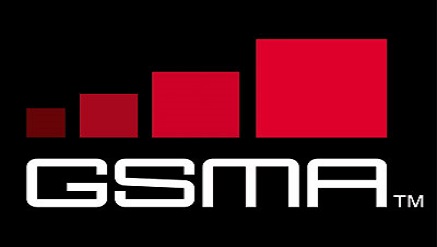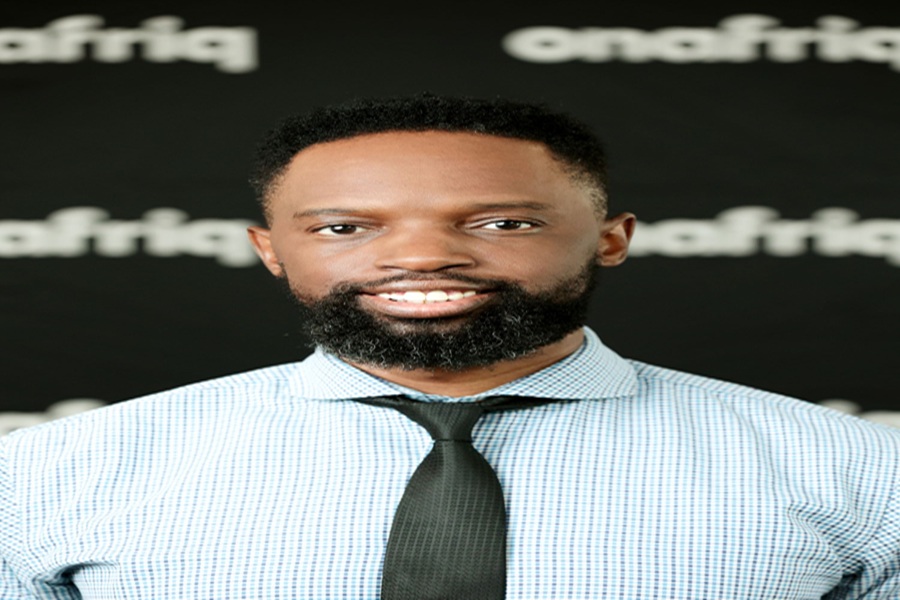Telecom
1Bn New Unique Mobile Subscribers by 2020 – GSMA

An additional one billion people will become mobile subscribers over the next five years, according to a major new GSMA report published at Mobile World Congress yesterday.
The new report, ‘The Mobile Economy: 2015’, forecasts that the number of unique mobile subscribers1 will increase from 3.6 billion at the end of 2014 to 4.6 billion by 2020, increasing by four per cent per year (CAGR) over this period. By 2020, almost 60 per cent of the global population will subscribe to mobile services, up from half of the population at the end of 2014.
The study also highlights a rapid migration to 3G/4G mobile broadband networks and rising smartphone adoption, which is fuelling growth in new mobile data services and applications.
As the mobile ecosystem continues to expand in reach and size, the mobile industry is forecast to make an increasing contribution to global GDP, public funding and employment, as well as improving the lives of billions of citizens around the world.
“A decade ago, just one in five of the global population was a mobile subscriber – we have now surpassed the 50 per cent milestone and can look forward to connecting a billion new subscribers over the next five years,” commented Anne Bouverot, director general of the GSMA. “Mobile sits at the heart of a new ecosystem that is uniting the digital and physical worlds, and powering economic growth. At the same time, mobile operators continue to deploy networks to all corners of the globe, connecting unconnected citizens and addressing socio-economic challenges in areas such as digital and financial inclusion, healthcare and education.”
Mobile penetration varies widely by global region. In Europe, nearly 80 per cent of the population were mobile subscribers at the end of 2014, while in Sub-Saharan Africa the figure is only 39 per cent. Global subscriber growth over the next five years will therefore be concentrated in the developing world, driven by the increasing affordability of mobile devices and services and rapidly expanding mobile coverage that serves to connect currently unconnected populations, especially those in rural areas.
The number of global SIM connections2 (excluding M2M connections) is forecast to grow from 7.1 billion in 2014 to 9 billion by 2020. This implies that every unique mobile subscriber will continue to account for roughly 1.8 SIM cards each, on average, during this period.
Cellular M2M connections are forecast to reach 1 billion by 2020, bringing the total number of mobile connections to 10 billion by this point.
Rapid Migration to Mobile Broadband and Smartphones
The period out to 2020 will see a rapid migration to mobile broadband technology as 3G/4G network availability and affordability increases.
Mobile broadband accounted for 40 per cent of SIM connections in 2014, but will increase to almost 70 per cent of the total by 2020 as subscribers migrate away from 2G networks and devices.
As well as expanding 3G/4G coverage reach, this trend is being driven by the rising number of smartphone connections3. Smartphones accounted for 37 per cent of SIM connections in 2014, a figure forecast to rise to 65 per cent by 2020.
The smartphone adoption rate is already at 60 per cent in the developed world, ranging from 51 per cent of SIM connections in Europe to 70 per cent in North America.
The developing world will lead smartphone growth over the next five years as the average selling price of smartphones continues to decline, adding a further 2.9 billion smartphone connections by 2020.
Supporting Growth with Investment
The increasing use of mobile broadband-enabled smartphones is fuelling an explosion in mobile data traffic. According to Cisco4, global mobile data volumes are forecast to grow at a CAGR of 57 per cent through to 2019, reaching 24,314 petabytes per month by that point, a result of rising on-demand video consumption via mobile devices.
Mobile operators are making significant investments in next-generation mobile networks to meet capacity demands and expand coverage reach.
In 2014, mobile operators invested around US$216 billion in capital expenditure (Capex), a nine per cent year-on-year increase. Investment levels are forecast to reach a cumulative US$1.4 trillion in the six years from 2015 through to 2020.
A Growing Contributor to The Global Economy
The mobile industry is a cornerstone of the global economy. In 2014, the mobile industry contributed US$3 trillion to the world’s economy, equivalent to 3.8 per cent of global Gross Domestic Product (GDP)5.
By 2020, it is estimated that the contribution from the industry will increase to US$3.9 trillion, representing 4.2 per cent of projected global GDP by this point.
The mobile industry directly employed 12.8 million people globally in 2014 and indirectly supported a further 11.8 million jobs, bringing the total to 24.6 million.
By 2020, this figure is forecast to reach 28.7 million, with 15.3 million men and women directly employed by the industry.
Even without factoring in spectrum fees – which generated more than US$14 billion in revenue for governments worldwide last year – it is estimated that the mobile industry contributed US$411 billion to public finances in 2014 via taxation and social security contributions.
This public funding contribution is forecast to rise to US$465 billion by 2020.
“Operators require a supportive regulatory framework in order to deliver this new digital ecosystem being built on mobile broadband networks, smartphones and other connected devices,” added Bouverot.
“Our new report published today includes a number of steps that policymakers can take to stimulate investment, competition and innovation in the mobile-powered digital economy, including reducing constraints on market-driven restructuring; ensuring operators have access to sufficient spectrum; and supporting operator efforts to expand mobile network coverage into rural areas in a sustainable way.”
Telecom
Onafriq, PAPSS Launch Wallet-Based Payments Pilot from Nigeria to Ghana

Onafriq Nigeria Payments Ltd, a CBN licenced payment service provider, partners with The Pan-African Payment and Settlement System (PAPSS) to pilot the continent’s first wallet-based outbound payments from Nigeria to Ghana – fully in Naira and instant, without relying on hard currency conversion, in partnership with Banks and Mobile Money Operators.

The pilot service, approved by the Central Bank of Nigeria (CBN), enables cross-border intra-Africa payments for individuals, merchants, and traders.
In particular, the service will benefit SMEs, the real engine of intra-African trade; all now have access to a faster, cheaper way to reach customers and suppliers across the border.
By reducing barriers to cross-border trade, the new service will allow these businesses to grow their addressable markets and activity. From the 1st of December, this service will be fully operational for a 6-month period.
Through the partnership with PAPSS, Onafriq is supporting the operationalization of the AfCFTA (Africa Continental Free Trade Area) mandate.
The mandate itself is driving tariff-free trade for the 54 member states of AfCFTA. Within the partnership itself, Onafriq provides the mobile money rails, with an ecosystem consisting of over 1 billion mobile wallets.
Meanwhile, PAPSS brings a network of over 160 commercial banks, representing an ecosystem of more than 400 million bank accounts across its 19 African countries of operation.
The two partners are essentially seamlessly connecting two worlds: mobile money and banking. As a consequence, intra-African trade transactions will take place more easily and opportunities will be created.
Currently, Africa is made up of bank and mobile-led markets, with siloes often inhibiting transactions between these economies. However, this partnership will remove these boundaries. With over one billion mobile wallets and 500 million bank wallets across Africa, this partnership will allow for cross-border collaboration at scale.
This partnership builds on Onafriq and PAPSS’ existing partnership for payments into Ghana, announced earlier this year.
Mxolisi Msutwana, Managing Director Anglophone West Africa said, “Our work with PAPSS shows what collaboration at scale can unlock—seamless, secure connections between banking systems and mobile money ecosystems.
“This is how we open bi-directional trade corridors, reduce costs for businesses, and give African enterprises the rails they need to trade with confidence in their own currencies. The vision is continental, but it starts with practical steps like this one.”
Ositadimma Ugwu, Chief Information Officer, PAPSS, added “Too often, African businesses and individuals see borders as roadblocks instead of opportunities. With this step, we’re challenging that mindset, giving Nigerians the ability to send value next door with the same ease as sending a text message.
“Our vision is simple: make Africa’s borders invisible to payments. This pilot makes that a reality, moving us closer to a continent where payments don’t pause at the border.”
This new Nigeria-to-Ghana outbound capability builds on the successful Ghana-to-Nigeria instant payments corridor launched earlier this year – further proof that Africa’s payments future is local, instant, and inclusive.
Telecom
MTN Powers 6,000 Young SMEs with Digital Skills in Economic Backbone Boost

MTN Foundation has kicked off the year with its five-week Digital Skills Training programme, upskilling 6,000 young Nigerians. The programme, which is in its fifth week commenced in January 2026.

MTN
The seventh phase of the project is focused on supporting Nigeria’s microbusiness to embrace digital transformation, at a time when SMEs remain the backbone of the Nigerian economy.
According to the National Bureau of Statistics (NBS), SMEs account for over 90 per cent of businesses in Nigeria and employ a significant portion of the country’s workforce, underscoring the importance of initiatives that strengthen their productivity and sustainability.
Following a one-month call for applications in September 2025, which saw almost 64,000 entries from Nigerians between the ages of 18 and 35, the 6,000 selected microbusiness owners have embarked on a five-week training that will end in February 2026.
The virtual training programme began with a general onboarding session that brought together participants across four business tracks and set the foundation for a four-week programme focused on practical digital strategies for business growth.
Microbusiness owners from sectors including circular economy, agriculture, food services, fashion, retail, logistics, beauty, and printing attended the training.
At the heart of the training is the principle that digital transformation has the capacity to enable small businesses scale and become more efficient. Participants were encouraged to start small, digitise repetitive tasks, and scale gradually using the Kaizen approach of continuous improvement.
This mindset allows them to see technology as a practical enabler of growth rather than a barrier. As the training progressed, the participants also learned about telesales and cybersecurity.
Speaking on the importance of the initiative, Odunayo Sanya, Executive Director of the MTN Foundation, said the programme is designed to equip young microbusiness owners with skills that directly address real business challenges.
“Small businesses are the backbone of our economy, and enabling young people adopt simple digital tools can make a real difference in productivity, sustainability, and long-term growth,” she said.
She also mentioned that the top-performing 600 participants will receive equipment grants of N600,000 each at the end of the programme.
Participants will continue to access learning materials and session recordings for the 5-week course, ensuring that digital adoption extends beyond the classroom. By combining practical guidance, relatable case studies, and continued support, the programme reinforces the message that digital growth for SMEs is achievable leveraging on technology.
Telecom
Airtel Nigeria Commits to Boosting Nigeria’s Digital Infrastructure

Airtel Nigeria has reaffirmed its long-term commitment to strengthening Nigeria’s digital infrastructure and data access to bridge gaps in connectivity and unlock new opportunities in the country.

The company restated this commitment during a recent high-level inspection tour of the Nxtra Data Centre that is being developed through Nxtra by Airtel Africa at Eko Atlantic, Lagos, the highly rated smart city with ambition to become the Data Centre hub of Nigeria.
The inspection tour was led by the Chief Executive Officer of Airtel Nigeria, Dinesh Balsingh and the Chief Executive Officer of Nxtra by Airtel Africa, Yashnath Issur, with the esteemed chairman of Eko Atlantic Mr. Gabbi Massoud, the CEO of the lead Engineering firm Design Group Limited, Mr. Bayo Odunlami and tech journalists.
The Nxtra Data Centre went through a stringent design validation process and cleared the approval to proceed construction from Eko Atlantic.
Commenting on the developments, Mr Issur said the site visit was a milestone marker and an indication of the company’s commitment to delivering the world-class digital facility on time and ensure that, ultimately, the investments deliver reliable, secure, world-class services for Nigeria and the rest of the continent.
“This Nxtra Data Centre in Lagos represents a critical part of our long-term vision for Nigeria’s digital ecosystem. Today’s visit allows us to review progress, engage our stakeholders, and ensure that our infrastructure investments continue to meet global standards and local needs.
“This data centre will deliver critical high multi megawatt capacity in line with hyperscale customers and enable high density environment. We are putting the infra to bring the cloud to Nigeria,” he said.
The data centre, set to be the largest in Nigeria, is being established to deliver hyperscale and edge facilities across key African markets. With a load of 38 Megawatts, the Lagos facility is expected to serve as a major hub for data hosting, cloud services, content distribution, artificial intelligence, and enterprise solutions in West Africa.
In his remarks, Mr Balsingh reiterated that the data centre was progressing steadily towards the previously announced 2028 go live date.
“Since the announcement of this project, our focus has been on building a world-class facility that supports Africa’s digital transformation agenda. We are encouraged by the progress recorded so far and remain committed to delivering a secure, energy-efficient, and future-ready data centre for Nigeria,” he said.
During the tour, stakeholders were ushered through key sections of the site, including piling zones, where required structural requirements have been tested. Technical teams provided briefings on infrastructure design, security architecture, redundancy systems, and sustainability measures being implemented to ensure reliability and operational excellence.
Strategically located close to major fibre routes and undersea cable landing stations, the Eko Atlantic data centre is designed to enhance Nigeria’s data sovereignty, reduce latency, and improve access to reliable digital services for private and enterprise customers, significantly boosting the country’s data hosting capacity and supporting emerging technologies such as artificial intelligence and cloud computing.
Mr. Massoud noted that the inspection tour underscored the city’s dedication to infrastructure of global relevance.
“Eko Atlantic as a city with high quality infrastructure will contribute positively to boost the economy of Nigeria and is a perfect place for the development of the digital infrastructure of Nigeria. The Nxtra data centre reflects the calibre of projects we seek to attract — long-term, technology-driven investments built to the highest global standards.
Today’s visit affirms the rigour of the planning and execution process by Nxtra, and the commitment of Eko Atlantic to facilitate and promote the Nigeria’s evolving digital ecosystem,” he said.
Through this ongoing investment, Airtel Nigeria and Nxtra continue to demonstrate their commitment to building infrastructure that enables innovation, supports economic development, and accelerates Nigeria’s digital transformation.
Nxtra by Airtel is developing a network of hyperscale data centres across the continent. Besides Lagos, construction of a new data centre has also commenced in Nairobi, Kenya and the Democratic Republic of Congo.

 Telecom2 days ago
Telecom2 days agoTelecom Operators Invest Over $1Bn on 2,850 New Sites in 2025 – NCC

 E-Financial2 days ago
E-Financial2 days agoIf Capital is the Answer, What Exactly is the Problem with First Holdco

 E-Financial2 days ago
E-Financial2 days agoAmaanah Finance to Unveils Non-Interest Banking Services Today

 News2 days ago
News2 days agoNSCDC Hands over Fake Crypto Currency Trader to EFCC

 General News2 days ago
General News2 days agoFirst Trustees to Host 8th Islamic Estate Planning Clinic in Abuja

 News2 days ago
News2 days agoAlakija’s Flourish Africa Provides N300m Grants for Women Entrepreneurs

 E-Financial1 day ago
E-Financial1 day agoAccidental Billionaire Opts for Jail Instead of Returning Money Credited Him by Mistake

 General News2 days ago
General News2 days agoSecurity Forces Probe Use of Drones by Terrorists



























